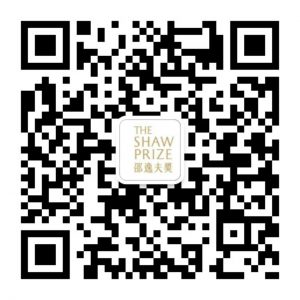for their discovery of the genetic and molecular mechanisms underlying the fetal-to-adult hemoglobin switch, making possible a revolutionary and highly effective genome-editing therapy for sickle cell anemia and β thalassemia, devastating blood diseases that affect millions of people worldwide.
The Shaw Prize in Life Science and Medicine 2024 is awarded in equal shares to Swee Lay Thein, Senior Investigator and Chief of the Sickle Cell Branch, National Heart, Lung, and Blood Institute at the National Institutes of Health, USA and Stuart Orkin, David G Nathan Distinguished Professor of Pediatrics at Harvard Medical School, USA, for their discovery of the genetic and molecular mechanisms underlying the fetal-to-adult hemoglobin switch, making possible a revolutionary and highly effective genome-editing therapy for sickle cell anemia and β thalassemia, devastating blood diseases that affect millions of people worldwide.
Sickle cell disease and β thalassemia are blood disorders that affect more than 20 million people worldwide. Five percent of the world’s population carry the trait genes for hemoglobin disorders and 300,000 babies are born each year with severe hemoglobin disorders. Most people who have sickle cell disease are of African ancestry or self-identify as Black. The sickle cell trait protects against malaria, explaining the prevalence of the sickle gene in populations in particular regions of the world.
Sickle cell disease and β thalassemia are blood disorders that affect more than 20 million people worldwide. 5% of the world’s population carries the trait genes for hemoglobin disorders and 300,000 babies are born each year with severe hemoglobin disorders. Most people who have sickle cell disease are of African ancestry or self-identify as Black. The sickle cell trait protects against malaria, explaining the prevalence of the sickle gene in populations in particular regions of the world.
Swee Lay Thein was born in 1952 in Kuala Lumpur, Malaya (now Malaysia) and is currently Senior Investigator and Chief of the Sickle Cell Branch of National Heart, Lung, and Blood Institute at the National Institutes of Health, USA. She received her Bachelor’s degree in 1975 and obtained a DSc in 1999 from the University of Malaya, Malaysia. After her specialist training (1975–1982) and various clinical positions (1982–2000) in UK, she was appointed Professor of Molecular Haematology and Consultant Haematologist at King’s College London, UK (2000–2015). At the same time, she also served as Director of the Red Cell Unit at King’s College Hospital NHS Foundation Trust in London, UK. She was Head of the Division of Gene and Cell Based Therapy at King’s College London (2004–2010). She joined the National Heart, Lung, and Blood Institute at the National Institutes of Health in 2015 as Senior Investigator and Chief of the Sickle Cell Branch (2015–). She is a Fellow of the Academy of Medical Sciences, UK and the Academy of Life Sciences for Chinese in the UK.
Stuart Orkin was born in 1946 in Manhattan, USA and is currently David G Nathan Distinguished Professor of Pediatrics, Harvard Medical School, USA. He received his Bachelor’s degree from the Massachusetts Institute of Technology, USA in 1967 and obtained an MD from Harvard Medical School, USA in 1972. He was a Research Associate at the National Institutes of Health, USA (1973–1975) and Research Fellow in Pediatrics at Harvard Medical School, USA (1976–1978). At Harvard Medical School, he was successively Assistant Professor (1978–1981), Associate Professor (1981–1987), Leland Fikes Professor of Pediatric Medicine (1987–2003), David G Nathan Professor of Pediatrics (2000–2016) and David G Nathan Distinguished Professor (2017–). He also serves as an Investigator of the Howard Hughes Medical Institute and Principal Faculty Member of Harvard Stem Cell Institute. He is a member of the US National Academy of Sciences, the American Academy of Arts and Sciences and the American Philosophical Society.
